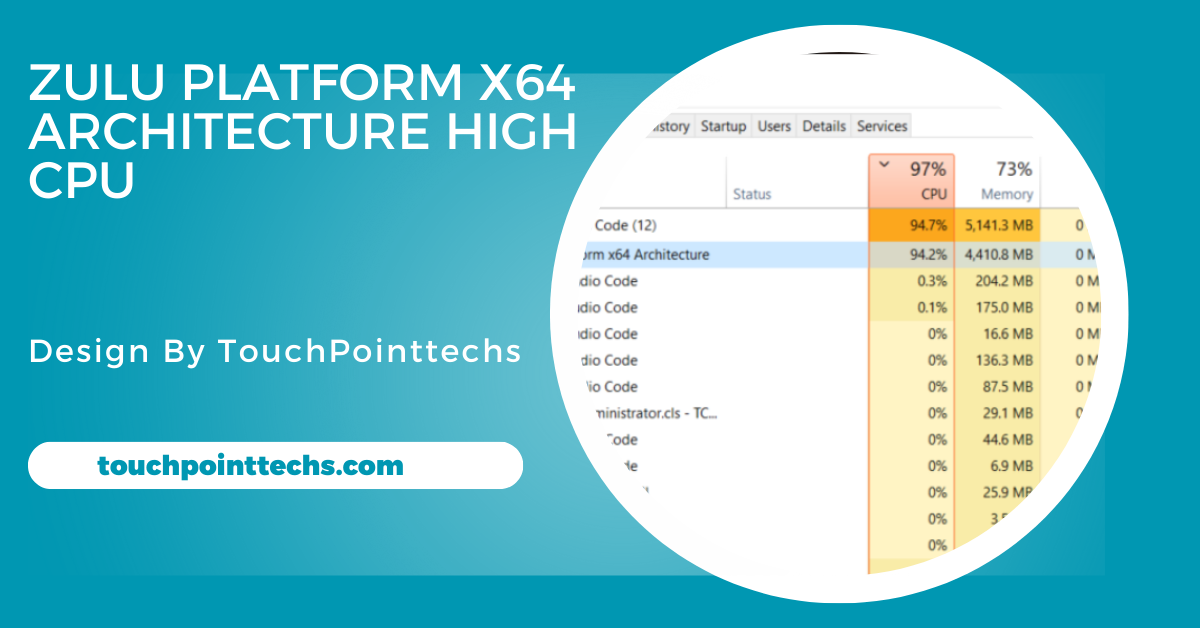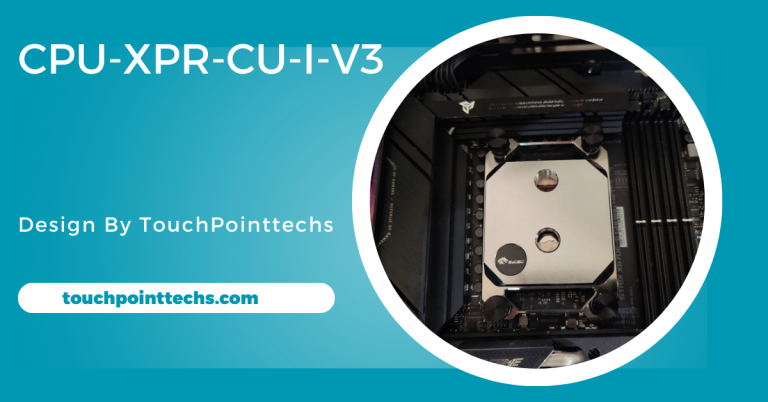Zulu Platform X64 Architecture High Cpu – Causes and Solutions!
High CPU usage on the Zulu platform x64 architecture can be caused by heavy loads and improper settings. Solutions include optimizing settings and updating software.
High CPU usage is a common issue encountered by users running applications on the Zulu platform, particularly on x64 architecture. If you’re experiencing slow performance, lagging, or crashes, high CPU usage could be the reason.
This article will explore what Zulu platform x64 architecture is, why it may cause high CPU usage, and how to address this issue.
Table of Contents
What is the Zulu Platform X64 Architecture?
Understanding the Zulu Platform:
Zulu is a commercial version of OpenJDK (Java Development Kit) provided by Azul Systems. It allows developers to create and run Java-based applications. Zulu is popular for its stability, security, and flexibility in various software applications, including web and enterprise software.
- Open Source: Zulu is an open-source product, meaning anyone can use and modify it without cost.
- Cross-Platform: It works on different operating systems like Windows, macOS, and Linux, ensuring broad compatibility.
- Security Updates: Azul regularly updates Zulu to fix security issues, helping users run applications safely.
What is X64 Architecture?
The term “x64” refers to a 64-bit processor architecture, which allows computers to handle more data and memory compared to older 32-bit systems. This architecture is essential for running modern applications effectively.
- Increased Memory Capacity: Unlike 32-bit systems that can only address up to 4GB of RAM, x64 architecture can utilize much more memory. This is crucial for applications that require large data processing.
- Improved Performance: With a wider data path and advanced instruction sets, x64 processors can perform computations more efficiently, enhancing overall performance.
- While x64 architecture offers advantages, it can also lead to higher CPU usage if applications are not optimized.
Common Causes of High CPU Usage on the Zulu Platform:
Several factors may contribute to high CPU usage when using the Zulu platform on x64 architecture. Let’s examine some of the most common causes.
1. Heavy Application Loads
Java applications can be resource-intensive. Running large or multiple applications simultaneously can lead to increased CPU usage. Some examples include:
- Data Processing Applications: Applications that handle complex calculations may require significant CPU resources.
- Web Servers: If you are running a web server on the Zulu platform, each request can increase CPU load.
- Graphics-Intensive Applications: Applications that rely heavily on graphics can spike CPU usage, especially if they are not optimized.
Additionally, the Java garbage collector, responsible for managing memory, can contribute to high CPU usage if not configured properly.
2. Improper Configuration Settings
Incorrect settings in the Zulu platform or the Java Virtual Machine (JVM) can lead to inefficient resource management.
- Heap Size: Setting the heap size too low can result in frequent garbage collection cycles, increasing CPU usage. Conversely, a heap size that is too large may also cause long cleanup times.
- Garbage Collection: Different garbage collection strategies have varying efficiency. The default collector may not always be suitable for specific applications, leading to unnecessary CPU consumption.
3. Memory Leaks
A memory leak occurs when an application fails to release memory that is no longer needed. This inefficient memory management can lead to higher CPU usage over time.
- Symptoms of Memory Leaks: If your application’s memory usage continuously increases without being released, it may indicate a memory leak. This can cause the garbage collector to work harder, consuming more CPU resources.
4. Outdated or Incompatible Java Versions
Using outdated versions of the Zulu platform or Java can result in compatibility issues, leading to high CPU usage.
- Performance Improvements: Newer versions often include performance enhancements and bug fixes that can help reduce CPU consumption. They may also provide more efficient garbage collection methods.
- Missing Features: Upgrading to the latest version ensures you benefit from improvements and features that enhance resource usage.
5. Background Processes and Services
Other applications or processes running on your system can conflict with Zulu platform processes, contributing to high CPU usage.
- Resource Contention: If other applications consume significant CPU resources, it may create the impression that Zulu is the primary cause of high usage.
- System Monitoring: Tools like Task Manager can help identify and manage these background processes.
How to Identify High CPU Usage from the Zulu Platform:
Identifying whether Zulu platform processes are responsible for high CPU usage is essential. Follow these steps to monitor your CPU usage effectively:
- Open Task Manager: On Windows, press Ctrl + Shift + Esc to access the Task Manager. On macOS, you can use the Activity Monitor. For Linux systems, you may use system monitoring tools like htop.
- Look for Java Processes: Search for processes associated with the Zulu platform, typically listed as java.exe or similar names. Check the CPU usage percentage next to these processes.
- Monitor Over Time: CPU usage can fluctuate. Monitor the CPU consumption over an extended period (15–30 minutes) to ensure that Zulu platform processes consistently consume a large amount of CPU resources.
Solutions to Fix High CPU Usage in the Zulu Platform:
Once you’ve confirmed that the Zulu platform is responsible for high CPU usage, several steps can help address the issue:
1. Optimize JVM Settings
Incorrect JVM settings are a frequent cause of high CPU usage. You can modify the following:
- Heap Size: Adjust the heap size to better match your application’s memory needs. This can reduce frequent garbage collection cycles and CPU usage.
- Garbage Collection: Consider using a more efficient garbage collection algorithm to minimize CPU consumption during memory management.
2. Update Zulu and Java Versions
Ensure that you are using the latest stable version of Zulu OpenJDK. Updating to the latest version can resolve bugs and performance issues that may contribute to high CPU usage.
3. Monitor and Manage Background Processes
Limit the activity of other resource-intensive applications to free up CPU resources for the Zulu platform. Here are some tips:
- Close Unnecessary Applications: Shut down applications that are not currently needed.
- Disable Startup Programs: Prevent unnecessary programs from starting when your computer boots to reduce CPU load.
4. Fix Memory Leaks in Applications
If your application has memory leaks, it may cause high CPU usage as the Zulu platform tries to manage memory. Use profiling tools to identify memory leaks and optimize your code.
- Profiling Tools: These tools can help visualize memory usage and identify potential leaks.
5. Limit JVM Threads
Java applications often create multiple threads that can increase CPU usage. If your application uses more threads than necessary, limiting them might help reduce CPU load.
Preventing High CPU Usage in the Future:
To avoid high CPU usage in the future, consider the following preventive measures:
- Regularly Monitor Application Performance: Keep an eye on the performance of your applications and the CPU usage over time. Regular monitoring can help identify issues before they escalate.
- Implement Best Coding Practices: Ensure that your application is optimized by following best coding practices. This includes managing memory effectively and minimizing unnecessary object creation.
- Keep Software Up to Date: Regularly update your Zulu platform, Java version, and any associated applications to benefit from improvements and security patches.
- Provide Adequate Resources: Make sure your system has adequate resources to run Java applications efficiently. This may include upgrading hardware if necessary.
FAQ’S
1. What causes high CPU usage in the Zulu platform?
High CPU usage on the Zulu platform can be caused by heavy application loads, improper JVM settings, memory leaks, and outdated Java versions.
2. How can I monitor CPU usage in the Zulu platform?
You can monitor CPU usage by opening Task Manager (Windows) or Activity Monitor (macOS) and checking the CPU consumption of Java-related processes over time.
3. What is the role of garbage collection in CPU usage?
Inefficient garbage collection can increase CPU usage. Optimizing garbage collection settings or using more efficient algorithms can reduce the CPU load.
4. How do memory leaks affect CPU performance in Zulu?
Memory leaks can cause the garbage collector to overwork, leading to higher CPU usage. Identifying and fixing these leaks can help reduce CPU consumption.
5. Can updating the Zulu platform reduce CPU usage?
Yes, updating to the latest version can resolve bugs and improve performance, often leading to reduced CPU usage.
Conclusion
High CPU usage on the Zulu platform x64 architecture can arise from heavy application loads and improper settings. To address this issue, users should optimize their JVM configurations, update software, and monitor background processes. Implementing these solutions can improve performance and reduce CPU consumption.







